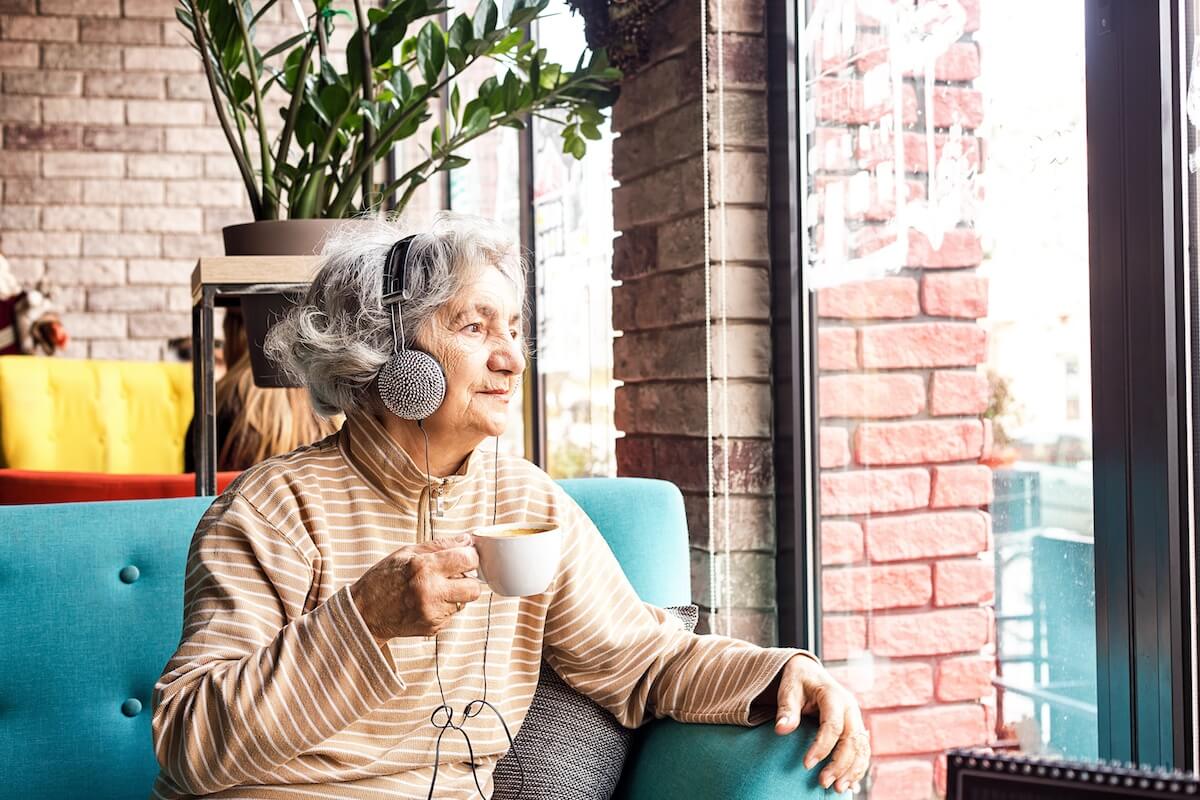Here’s the good news: More and more families and caregivers are discovering the many benefits of enabling their loved ones to enjoy their favorite music as they age—especially if their elders experience cognitive decline.
We’re all drawn to music and spend our lives steeped in our favorites. In fact, on average, people listen to 2.6 hours of music a day and 1.3 million songs during their lifetime! Numerous studies document that music activities positively affect health and well-being.
And here’s the bad news, or rather, the lingering shortfall: Too often, healthcare providers’ response for people with dementia is to prescribe medication that may be of limited benefit. What a missed opportunity! We know favorite music can relieve agitation and other responses to stress and pain. How impactful might it be for medical professionals to take 30 seconds to inform their patients that listening to their favorite music can help with mood, engagement, and more?
They might also explain that the benefits of music can not only be enjoyed in the moment, but also that music’s residual effects often last for minutes, even hours. Just as medications are prescribed to be taken once or more daily for best result, so, too, can a steady beat of music maximize mood, engagement, and enjoyment.
Too Many Care Homes Still Ignore the Benefits of Favorite Music . . .
Music and dementia go hand-in-hand—or, at least, they should. So why do I continue to hear stories from frustrated families who have seen first-hand the benefits of music for their loved ones, stories about being rebuffed by care home staff who say personal music is not a “service” that they provide for their residents? To be fair, there are many care homes that have prioritized incorporating beneficial music into their culture, benefiting residents, families, and staff. But the majority of care homes in North America have not.
The 44,000 nursing homes and assisted living communities in the U.S. have strict policies around medications and food. So why aren’t there more care settings with policies addressing the importance of giving residents access to personal music, low hanging fruit in our efforts to maximize mental health and well-being?
. . . But Music Is a Powerful Healing Force
Everyone has a right to hear the music of their choice at a time of their choosing. Music is a healing force, easily accessed. Every long-term care community should not only be learning each current and new resident’s music preferences, but also should be planning how to assure they have ongoing, easy access. With good planning, smart speakers or MP3 players deliver just the right mix. Add to that the opportunity to sing with others, dance, play an instrument, and care homes could become places filled with joyful sound.
Perhaps ageism exacerbated by the stigma related to cognitive decline just gets in the way of keeping people connected with their music. We can do better.
Wouldn’t we want to have full access to our favorite music, just as we do now, if we had dementia? We should do no less for members of our family or those in our care—both at home and in every care setting.


One Comment
Danine Irwin
First thing I do with my friends living with dementia whom I support is help them put together their playlist and then we upload it to MP3 and a few weeks later they receive their personal headphones and device. It’s wonderful! They adore it!